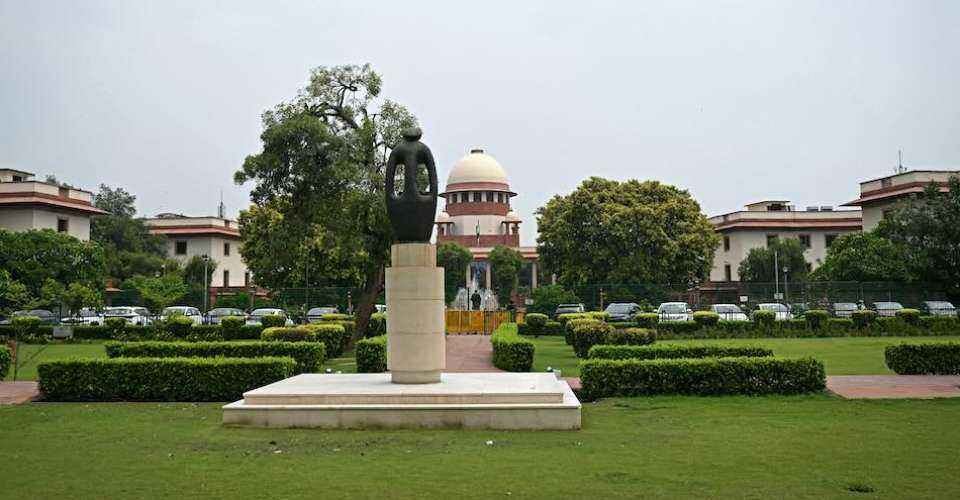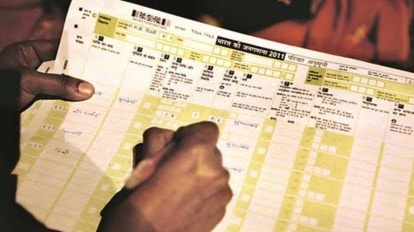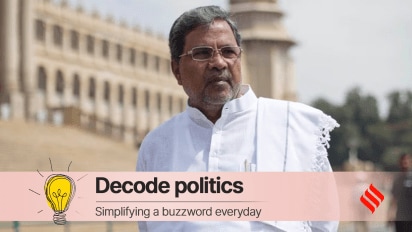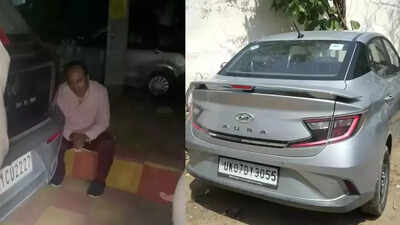30.05.2025.UT Daily NewS.A collection of SC.ST.Buddhist,Adivasi,reservation atrocity news of India.by Team Sivaji.9444917060.asivaji1962@gmail.com
Conversion clarified as Indian Supreme Court reinstates legislator

This photograph, taken on May 26, shows a view of India's Supreme Court building in New Delhi. The court on May 2 clarified that open admission of a person about his change of religion is necessary to accept the person's conversion (Photo by Money SHARMA / AFP)
In a landmark judgment, India’s Supreme Court has reinstated an elected representative to the Kerala state legislative assembly, stating that his election to a seat reserved for lower-caste people cannot be annulled simply because others view him as a Christian.
The judgment is significant as it sets aside a 2023 order by the Kerala High Court, the highest court in the southern state, which declared A. Raja's election victory void, after accepting an argument that Christians, even if they come from lower castes, cannot benefit from reservations granted to lower caste people..
Raja told UCA News on May 28 that the High Court “did not appreciate my arguments and cancelled my membership of the state assembly. I am happy that the top court has restored it.”
“Just being part of any religious program does not imply that a person has converted to another religion,” he added.
The Supreme Court’s May 6 order said a “mere observance/performance of a ritual of/associated with any religion does not ... necessarily mean that the person ‘professes’ that religion.”
The court also reinstated Raja, who won the 2021 election in Devikulam, a constituency in Idukki district, reserved for lower-caste people, officially referred to as Scheduled Caste and Scheduled Tribe (SC/ST) people.
However, his rival, D. Kumar, challenged Raja’s eligibility, saying that election rules stipulate that those contesting seats reserved for SC/ST must be members of such communities. Raja was considered a Christian and therefore could not be a SC/ST member.
Soon after the High Court declared his election void in 2023, Raja challenged it in the Supreme Court, asserting that he belongs to the reserved Hindu Parayan (SC) community and was not a Christian.
Kumar argued that Raja was a Christian who had solemnized his marriage according to Christian rituals and was a member of the Protestant Church of South India.
Raja's parents, too, were baptized Christians, Kumar argued, and produced Raja's baptismal documents from the Church to support his claim.
‘Wider implications’
The Supreme Court then explained what it means to “profess” (convert to) a religion, which is different from what a person was born into.
The “adherence merely to some ritual of another religion would not be tantamount to giving up the original religion, unless the person concerned makes such a belief explicit.”
The court said a 1950 presidential order, which limited SC/ST social benefits to only Hindus, used the term ‘professes,’ “signifying that a person although born into a particular religion can profess another religion, inter alia, by practicing the rituals of that other religion as the basic tenets of his beliefs and lifestyle,” the court said.
“As far as marriage rites are concerned, per se, assuming a practice associated with one religion was followed … would not mean the person ‘professes’ the said other religion,” the court said.
Father Babu Joseph, a political observer, told UCA News on May 28 that the Supreme Court took “the right and just decision in upholding the constitutional rights of Indian citizens to profess and practice a religious faith of choice freely.”
The court order is a “great relief to persecuted Christians as the top court has made it clear that the explicit self-admission of a person... is the only way to confirm if a person has converted from one religion to another,” said Pastor Joy Mathew, based in Uttar Pradesh state in northern India.
“The order also affirms that neither the state nor anybody can interfere with the religious faith of a person as it is one’s personal choice,” Mathew told UCA News on May 28.
Fights for rights
Christian leaders like Joseph continue to campaign for amending the 1950 presidential order to include Christians to benefit from the government’s affirmative action plans for SC/ST people, such as reserved seats on elected bodies, government jobs, and higher education.
The order initially reserved the benefits only to lower caste Hindus on the basis that caste is a Hindu social reality, but it was amended twice later to include lower caste Buddhists and Sikhs, considering them religions originating in the Indian social milieu.
However, lower caste people converted to Christianity and Islam are denied these benefits on the basis that these religions do not practice the caste system.
The official denial of SC benefits to Christians “was the basis for challenging Raja’s election victory,” said Joseph, a former spokesperson of the Catholic Bishops Conference of India.
The Supreme Court judgement “is all the more relevant in the current socio-political context in some states in India where participation in a religious ritual is often deliberately construed as conversion” to trap them in legal cases, the Divine Word priest said.
The priest based in New Delhi said 11 Indian states now have laws criminalizing conversions done through force, inducements, or fraudulent means.
Since most missionary activities, such as education and health care, can be construed as force or inducement, Christian pastors and missionaries continue to be victims of criminal cases and organized attacks from right-wing Hindu groups, the priest said.
At least two attacks against Christians are reported each day in India, according to the United Christian Forum, an ecumenical body that records Christian persecution in India.
Christians make up 2.3 percent of India’s more than 1.4 billion people, while 80 percent are Hindus.

Under Secretary dismissed from service over ‘fake’ caste certificate
Laxmi Katariya was first appointed as a Section Officer following her selection as a Scheduled Tribe candidate through a competitive exam.
 Laxmi Katariya was given a regular appointment in the Finance Department.
Laxmi Katariya was given a regular appointment in the Finance Department.The Gujarat government has dismissed an under secretary of the legal department after it was found that a caste certificate, which declared her a tribal, was fake.
The General Administration Department of the state government has recently passed the order to terminate services of Laxmi Katariya under the provisions of The Gujarat Scheduled Castes, Scheduled Tribes and Other Backward Classes (Regulation of Issuance and Verification of Caste Certificates) Act, 2018.
She was first appointed as a Section Officer following her selection as a Scheduled Tribe candidate through a competitive exam. She was given a regular appointment in the Finance Department. Subsequently, she was promoted as the Under Secretary and appointed to the Legal Department.
However, the departmental scrutiny committee for the verification of caste certificate had ordered to cancel Katariya’s caste certificate after finding it was fake. The committee also informed the authority concerned to take action as per the provisions of Section 11 and 12 of The Gujarat Scheduled Castes, Scheduled Tribes and Other Backward Classes (Regulation of Issuance and Verification of Caste Certificates) Act, 2018.
Section 11 of the Act provides that if a person has secured job on a seat reserved for a particular caste on a false caste certificate then such a person’s caste certificate will be cancelled and the person will be liable to be debarred from the appointment forthwith. Section 12 of the Act has provisions for cirminal offence and punishment.

This follows a recent case where Assistant Commissioner of Police, Surat City, B M Chaudhary, was dismissed from service after his caste certificate, which too showed he was a tribal, was found to be fake. A criminal case had been lodged against Chaudhary as well.
Caste census could further strengthen the dominant OBCs
Stronger cohesion should be the response to prevalent caste inequality. Caste enumeration might jeopardise these possibilities by binding leaders to their specific castes and interests
 The optimism surrounding the caste census hinges on another flawed assumption: We are unable to eradicate caste inequalities as we lack data. This assumption is naïve.
The optimism surrounding the caste census hinges on another flawed assumption: We are unable to eradicate caste inequalities as we lack data. This assumption is naïve.Written by Viplov Wingkar
The central government’s decision to enumerate caste in the upcoming Census has invoked much excitement, with both the Bharatiya Janata Party (BJP) and Congress heralding it as a transformative moment. The prevailing assumption across the political spectrum is that it will usher in a new era of politics.
This optimism is not just misplaced but naïve. Of course, there is a possibility for emancipatory politics — but there are other factors as well. One possible impact of the caste enumeration exercise will be the further empowerment of the locally dominant OBC castes, without forging a pan-Indian OBC alliance. The caste census could end up fuelling a politics of convenience, and it may worsen the atmosphere for more vulnerable castes, especially the Dalits.
B R Ambedkar, in Annihilation of Caste, laid bare a truth about Indian society and politics: Every caste is a self-conscious entity, its identity forged in opposition to others, devoid of fraternal bonds. This is what makes caste a labyrinth of hierarchies within hierarchies, and ensures that alliances across castes are brittle at best.
Consider the Dalits and Adivasis, whose shared experience of marginalisation and numerical strength — roughly 25 per cent of India’s population — should, in theory, make them a formidable anti-caste force. Yet there is hardly any pan-Indian Dalit-Adivasi unity today, thanks to sub-caste rivalries, cultural gaps, and regional loyalties. Despite their shared oppression and strong independent mobilisation, the Chamars of Uttar Pradesh and the Mahars of Maharashtra rarely come together to represent a united political voice. They seldom even agree on what the broad strategy for the Dalit movement should be.
How, then, could we expect the OBCs — a sprawling category encompassing hundreds of castes — to transcend these divides?
On the other hand, by quantifying the numerical strength of OBCs, the Census might embolden dominant castes, who are usually the numerically dominant ones. These groups have already leveraged Mandal politics since the 1990s to secure power at the state level, with their ascendancy often coming at the expense of smaller OBC castes and their lower-caste counterparts. Moreover, they have failed to build a broader political narrative, focusing instead on region-specific political interests. It is hard to find a Kurmi-led organisation in Patna allying with a Yadav-dominated bloc in Lucknow.
The father of sociology, Ibn Khaldun, discusses the concept of asabiyyah, or social solidarity. According to him, this type of cohesive bonding progresses from the barbaric stage (fragmented) to the highest civilised stage, with each smaller unit of cohesion being replaced by a broader one. Each caste’s inherent exclusivity undermines the kind of social cohesion required for an OBC or Bahujan alliance — asabiyyah exists today at the level of individual castes, not yet diluted enough to be superseded by higher forms of cohesion.
The optimism surrounding the caste census hinges on another flawed assumption: that we are unable to eradicate caste inequalities because we lack data. This assumption is naïve. History shows that data does not inherently translate into mobilisation. The global working class, for instance, is exhaustively documented — from Marx’s Capital to modern ILO reports — yet a unified proletarian movement remains a mirage. In India, the Periodic Labour Force Survey reveals stark inequalities, but the working class languishes, fragmented by caste, trade, nationality, and region.
Similarly, the caste census may mirror OBC realities but will not automatically forge a broader coalition. As Antonio Gramsci might argue, political consciousness requires organic intellectuals and sustained organisation — not mere numbers on a page.
However, Indian intellectuals today still follow the framework of the Lohiaite style of caste politics. This model has no doubt been reasonably successful, but we must also ask whether it is suited for post-enumeration caste politics. Socialist parties, from the RJD to the BSP, mostly rely on stitching together a bare-minimum coalition of castes that will get them a stake in governance. In such coalitions, the fewer the number of partners, the more convenient it is to claim more. Is there any feasible alternative to this politics of convenience? Another question we must contemplate is: What will be left for the Dalits if the dominant OBC communities are further politically strengthened?
The conflict between the Dwijas and Shudras has not brought much relief to Dalits. When it comes to Dalit atrocities, states like Tamil Nadu — long ruled by non-Brahmin parties — are no better than Brahmin-ruled states. Bihar, one of the crucial centres of OBC politics, is not great for Dalits either. It was the Mahagathbandhan government, not the NDA, which released Anand Mohan, the former MP convicted for the mob lynching of Dalit IAS officer Krishnaiah.
Socialist politics led by OBCs have achieved great victories. It would be better if OBC leaders also fought for the rights of other lower castes. Stronger cohesion should be the response to prevalent caste inequality. Caste enumeration might jeopardise these possibilities by binding leaders to their specific castes and interests.
The writer is an assistant professor of philosophy at B K Birla College (Autonomous), Kalyan
Decode Politics: In Karnataka, why Jangama sub-caste row has cast a shadow on SC survey
Alleging inclusion of many Jangama Lingayats in Beda, Budaga Jangama groups of SCs, Dalit leaders, including Cong chief Kharge, express concerns over its impact on SC sub-quotas
 Siddaramaiah-led Congress government is carrying out a survey of the Dalit sub-castes in Karnataka
Siddaramaiah-led Congress government is carrying out a survey of the Dalit sub-castes in KarnatakaAmid the ongoing survey of the Dalit sub-castes in Karnataka being carried out by the Siddaramaiah-led Congress government, a controversy has erupted over the alleged inclusion of a section of Jangama Lingayats in the Beda Jangama and Budaga Jangama groups of the Scheduled Castes (SCs) in the state.
Elderly Dalit Burnt Alive in Gujarat Village, Charred Body Found in Women’s Clothing
Outrage grows against caste-based violence under the BJP rule; Dalit leaders demand land compensation to the bereaved family
GANDHINAGAR – In a disturbing case that has shaken Gujarat, a 70-year-old Dalit man, Harjibhai Devabhai Solanki, was found burnt alive in Jakhota village of Santalpur taluka, Patan district. What made the tragedy even more painful for his family and the Dalit community was that his charred body was discovered dressed in women’s clothing, including anklets. The incident has raised serious questions about the rising brutality faced by Dalits under the current political rule.
Dalit leader and Vadgam MLA Jignesh Mevani confirmed the murder after speaking to the Patan District Superintendent of Police. Speaking on the matter, Mevani said, “Despite all the loud claims of Gujarat’s development, the state is becoming hell for Dalits.”
He also urged social activists and common citizens to support the family of Harjibhai and demand justice. Mevani further demanded that the government provide suitable compensation and at least two acres of agricultural land to the family of the deceased.
The incident occurred in Jakhota village, near Pepla, where locals first spotted the burnt body. The police said that the victim was wearing clothes generally worn by women and anklets were found on the feet. It has left the community in shock and mourning.
A senior officer in the Patan Police Department, who wished to remain unnamed, said, “We are investigating the motive behind the murder. So far, no arrest has been made, but several villagers are being questioned.”
Tensions have increased in Jakhota and Pepla villages as members of the Dalit community gathered to express their anger and grief. Dalit rights groups, human rights activists and social organisations have condemned the incident and demanded justice.
“This is not just a murder—it is a hate crime aimed at humiliating and silencing our community,” said Ramesh Parmar, a local Dalit activist. “Such cruelty reminds us that caste-based discrimination is not just alive, it’s growing bolder under the protection of the current regime.”
Security in the area has been increased to prevent further unrest. Police presence has also been increased at sensitive locations in surrounding villages.
MLA Mevani directly criticised the BJP government for what he called a “complete failure to protect Dalits.” He said, “The BJP government is silent on Dalit killings, rapes and humiliations. When will they wake up? When the entire community is wiped out?”
He also accused state leaders of ignoring caste atrocities and focusing only on headlines about development. “We will not stay quiet. The community must rise and demand its rights. We must protest peacefully but firmly,” Mevani said during a public meeting near Dharpur Hospital.
So far, there has been no statement from Gujarat Chief Minister Bhupendra Patel or any top BJP leader about the incident.
Social activists are also pointing out that this is not the first such incident. They argue that Dalits in Gujarat have been regularly subjected to violence, social boycott and humiliation.
“The brutality of dressing him in women’s clothes before burning him is not just violence—it is psychological warfare against a whole community,” said Prof Javed Alam, a sociologist working on caste violence. “This is a warning message sent through Harjibhai’s body.”
Harjibhai Solanki was a retired farm labourer, known for his simple life and honesty. His son, Dilip Solanki, said, “My father never hurt anyone. He never even raised his voice. I don’t know why anyone would do this to him.” With tears in his eyes, he added, “We want justice. Not revenge, just justice.”
Neighbours described Harjibhai as kind and hardworking. One elderly resident of Jakhota said, “He always helped others. He didn’t deserve such a death. We are all scared now.”
Several Dalit rights organisations have urged the National Human Rights Commission (NHRC) to take notice of the case and send a team to Gujarat. A joint memorandum by six groups has also been sent to the President of India, urging a judicial inquiry.
“If we don’t speak now, more Harjibhais will be burnt, more daughters raped, more families ruined,” said Kavita Luhar of the Gujarat Dalit Mahila Sangathan.
Changed locations, suicide notes: How Mittal family’s final hours unfolded in Panchkula












Comments
Post a Comment